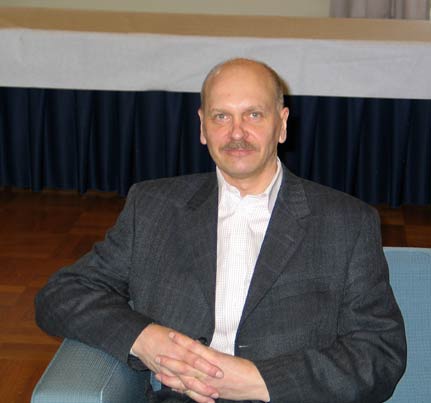Department of Computer Science in 2005
The year 2005 seems to have been an “interim year” at the department. Firstly, it was the middle of the three-year strategic period, so no larger strategic reforms were planned; it was only the procedures started during the previous year that were further implemented. In addition, the process of relocating to the Kumpula campus in 2004 was only a vague memory in 2005, as no more physical or mental efforts worth mentioning were required in this respect.
However, for an interim year, 2005 was remarkably busy, as three extensive university reforms were realised during this year: preparations for the new salary system; implementing the new degree system; and research evaluation.
The new degree system
On 1 st August 2005, all Finnish universities reverted to the new model, adopting a two-cycle degree system in accordance with the Bologna process. At the Department of Computer Science, preparations for the new degree system were made as early as 2004, when a core matter analysis of the teaching programme was completed and the new degree requirements were delineated.
The degree requirements were finalised during spring 2005, when sub-programmes like applied computer science, teaching, and computer mathematician were eliminated as being outside the scope of the core of teaching and research at the department. The degree requirements for the remaining sub-programmes (algorithms, distributed systems and data communications, software engineering, data management, intelligent systems, and bioinformatics and computational biology) were revised on the basis of the core matter analysis, and minor-subject studies were made more flexible than before. In addition, extensive instructions for teachers and students on how to transfer to the new degree system were created during summer and autumn.
The new salary system
It is inevitable that all universities in Finland will be subject to the government's new salary system, where salaries are determined by how demanding the duties of each employee are and how well they are carried out. It is unavoidable that the new system will subject researchers and teachers, who have been used to their academic freedom, to assessment and superiors. This is why the new system attracted a great deal of criticism and controversy in spring 2005, when the first round of assessments was carried out.
At the Department of Computer Science, the first stage of the reform passed fairly painlessly, as the department has had a system of immediate superiors and annual reviews in place for several years already. During February-March, all department employees were assessed as to duties and personal competence, and the evaluations were entered into forms that were delivered to the following administrative level for further processing. The new salary system was not adopted during 2005, though, but the process continues in 2006, partially based on the assessments of 2005.
Research evaluation
All research at the university was evaluated in 2005. An international panel evaluated the research carried out at the Department of Computer Science and its close partner, the Basic Research Unit of HIIT, and at the Department of Mathematics and Statistics. The evaluation process started in spring, when a massive self-evaluation report of research at the department was produced for the panel, along with scientific publications. The panel visited the university in September, interviewing unit representatives and sketching out its own evaluation report during one week.
The research evaluation reports were published on 1 March 2006. Of the 75 units evaluated at the University of Helsinki , the highest grade (7) was given to 20 units, among them both the Department of Computer Science and the Helsinki Institute for Information Technology (HIIT). Since the Faculty of Science was the overwhelming winner in the faculty evaluation, it is undisputable that research at the department ranks among the cutting edge internationally.
In future, the department will face the pleasant challenge of retaining its leading position in both research and teaching, as it has also been named one of the units of excellence of Finnish university education for the years 2007-2009.
Jukka Paakki, Department Chairman


